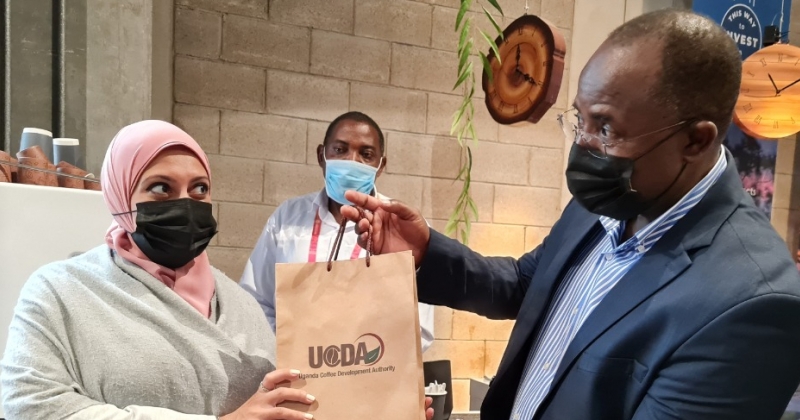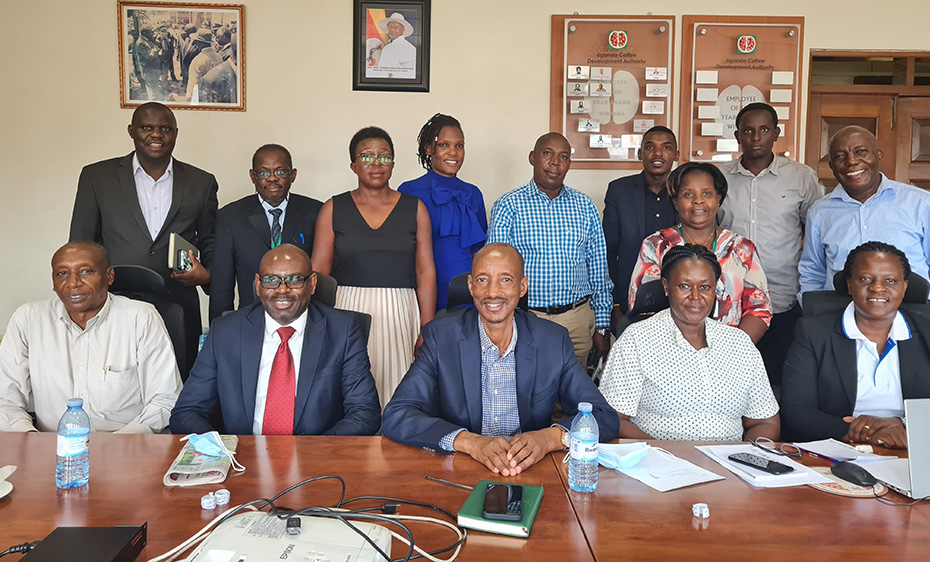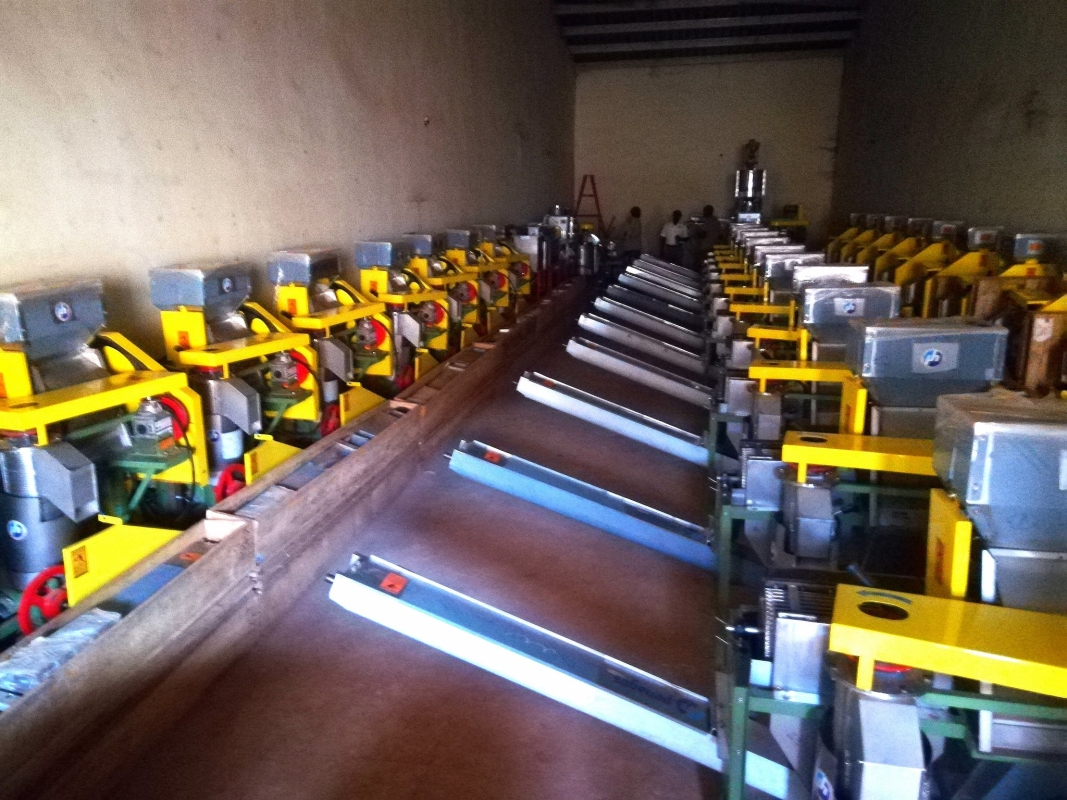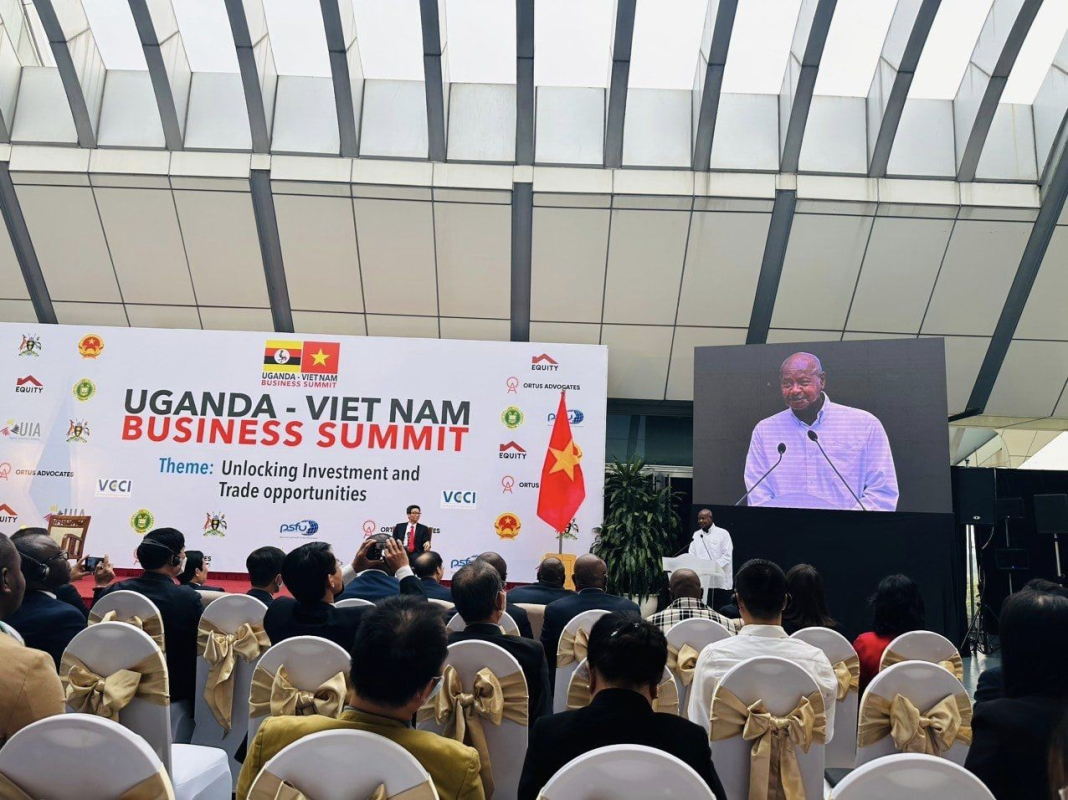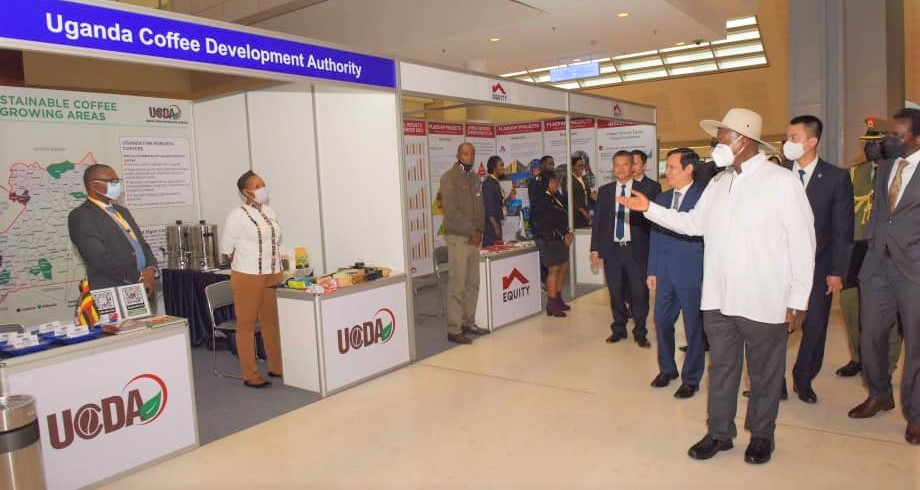UCDA launches campaign to stump old coffee trees and distribute fertilizers to coffee farmers countrywide
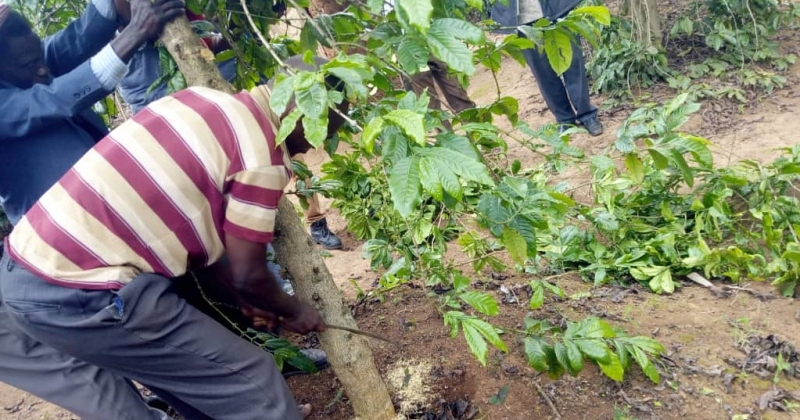
Uganda Coffee Development Authority (UCDA) has launched a campaign to stump old coffee trees and rehabilitate abandoned coffee gardens across the country to help increase productivity.
Under the campaign, UCDA will train farmers on good agricultural practices (GAPS) such as stumping overgrown coffee trees to increase their yield. The Authority will also distribute fertilizers to coffee farmers who comply.
The campaign titled “Renovate and Rehabilitate your Coffee; Every Tree Counts” was launched on December 10, 2020, at the annual coffee show held at the Kichwamba sub-county headquarters in Rubirizi district.
The coffee show was organised by Café Africa, aBi Development and UCDA together with Rubirizi District local government. It brought together coffee farmers from western Uganda to learn, share experiences, and collectively find solutions affecting coffee farmers in the region. Unlike the coffee shows held in the past, this one was low key as the organisers endeavoured to adhere to the guidelines for managing the COVID-19 pandemic.
UCDA set up a demonstration plot of 100 Arabica coffee trees where good agricultural practices were demonstrated to participants. The practices included the correct spacing for Arabica and Robusta coffee, how to dig a hole to plant the seedling in, manure application, shade provision, watering, bending a coffee tree to increase productivity, mulching, soil and water conservation, pest and disease identification and control, weed management, fertilizer application, stumping and harvesting.
“After the training, the farmers realised that tall, old coffee trees cannot yield much, and they even make it difficult to carry out some activities such as picking, spraying and pest identification,” Emily Asiimwe, UCDA Regional Coffee Extension Officer said.
“We have trained the farmers on how to stump their coffee trees. This is in line with the campaign we have launched which calls on farmers to renovate and rehabilitate their coffee because every tree counts," she added.
For the past couple of years, coffee farmers across the country have complained of low soil fertility levels which affect the amount of coffee they harvest every season.
To address this concern, UCDA developed a programme to support coffee farmers with fertilizers. The programme is in line with the fourth initiative of the Coffee Roadmap. The initiative aims to strengthen farmer organisations and producer cooperatives. By distributing fertilizers in the nationwide programme, UCDA aims to support farmers to increase productivity.
Last financial year, UCDA imported 100,000 bags of 25kg each of Fertiplus, an organic fertilizer, and conducted a pilot study before rolling out the national programme to coffee farmers organized in cooperatives or farmer organisations across the country.
During the show, farmers also called on UCDA to support them with pesticides and fungicides to use in the control of coffee pests and diseases most especially black coffee twig borer (BCTB), root mealy bugs, scales, coffee wilt disease (CWD), coffee red blister, and coffee leaf rust which continue to lower both quality and quantity of coffee produced in this sub-region.
In response, Asiimwe told the farmers that UCDA will soon support them with pesticides and fungicides to help fight pests and diseases.
